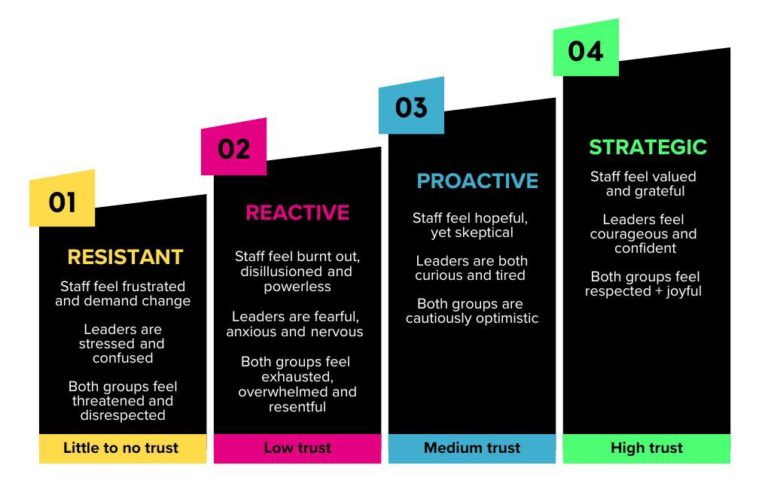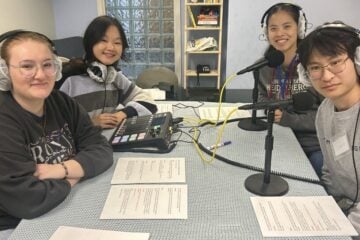How DEI councils can help public media manage change and retain staff

jacoblund / iStock
Today, public media organizations are being pressed to be more representative to stay relevant. New technologies like AI, shifting audience needs and habits and new generations entering the workforce demand a different approach. Hybrid work has exacerbated collaboration and communication difficulties. Organizations must adapt quickly to stay competitive, but changes require updated policies, processes, training and tools.
Staff have opinions about these looming changes. Leaders face an important choice: slow down to embrace staff feedback before implementing changes, or implement organizational changes without consulting staff and risk costly repercussions. Staff resistance and behind-the-scenes complaints waste valuable time and resources.
In a rapidly changing society, Diversity, Equity and Inclusion councils help organizations manage complex change, retain staff and save valuable time and resources. After helping launch and sustain more than a dozen DEI Councils, we embarked on a journey to demystify these important structures and share our findings with public media stations looking to manage the ever-changing needs of the workforce.
We collected data from experienced council members and subject matter experts throughout March–July 2024. Twenty participants filled out an anonymous online survey and 32 participants offered their insights through 1:1 interviews and reviewed this resource. Insights from executives, council members and consultants revealed common barriers, success factors and benefits. We’ve summarized our findings into a new DEI Council Resource Guide that launches with a Sept. 5 webinar.
Why public media needs DEI councils
DEI councils help public media organizations achieve critical business performance indicators like lower staff turnover because they provide forums to achieve the necessary staff buy-in, feedback and enthusiasm to scale and sustain change. Many participants shared that serving on their council encouraged them to stay at their organization, despite wanting to leave for other reasons. When councils are set up for success, they help organizations retain staff and save time and money. Moreover, high-functioning DEI councils:
- Engage staff: Only 30% of U.S. employees are engaged in their work, 17% of employees report being actively disengaged, according to Gallup research conducted earlier this year. In a hybrid workplace, and particularly in a media-centered one where news can be overwhelming, DEI councils combat loneliness and isolation by driving meaningful connections among staff. Councils also provide a structured way to ensure the concerns of diverse groups are acknowledged. When employees feel valued, their connection to the workplace strengthens, leading to a more motivated workforce.
- Mitigate risk: High-functioning councils provide the structure and psychological safety for staff to raise concerns to leaders. While councils are not a substitute for HR or legal counsel, they can be a strategic outlet leaders can use to proactively thwart serious risks to the business.
- Promote cross-functional collaboration: DEI councils bring together individuals from various departments to work towards common goals that improve the organization. Participants shared that many staff apply because the council is one of the few opportunities staff have to meet and collaborate with others across the organization. Cross-team collaboration breaks down silos, making work more effective. It also helps people build trusting relationships and increase empathy across teams.
- Develop staff: Council leadership roles offer junior staff a safe opportunity to learn and flex new skills. Effective councils create a pipeline of future leaders who can effectively lead diverse teams. Members get first-hand experience with team-building, meeting design and facilitation, project management and internal communications.
- Foster belonging: Many participants said that serving on their organization’s DEI Council was the first time they felt they could be their authentic selves at work. Councils offer staff, particularly those who have been historically excluded, opportunities to not just be accepted for who they are but to be embraced for their unique lived experience.
Journey to a high-functioning DEI council
Our research and experience have taught us that most DEI councils in public media undergo a predictable evolutionary path.

What gets in the way
We learned the biggest barrier to DEI council success is a fundamental lack of change management skills — intentional methods to manage how people react and respond to change. This lack of expertise is across the organization and has a detrimental effect on culture change.
What effective DEI councils require
Effective DEI councils don’t happen by accident. They require strategic planning, leadership buy-in and a commitment to continuous improvement. The DEI Council Resource Guide details the six behaviors and systems we learned that set councils up for success.
Behaviors that build trust
- Openness: Transparency is a major theme in public media. Foundational to this transparency is a genuine curiosity and a willingness to listen
- Commitment: More public media staff now want words to be backed with action. So it’s essential that leaders communicate, support, participate and show up
- Gratitude: One needn’t be in public media, however, to know how important it is to thank, celebrate and recognize members
Systems that build trust
- Resources: In challenging times, public media can stress over finances, yet budget and bandwidth constraints must be set aside to create real change
- Strategy: Organization-wide DEI vision, goals and metrics matter immensely to move forward.
- Structure: A documented, detailed charter to give direction to a DEI Council is essential.
Whether you are just starting out or looking to reinvigorate an existing group, the resource guide offers practical tools and actionable steps to help you build and sustain an effective DEI council.
To preview findings from our research and learn about how to build an effective DEI council, join us at a free webinar Sept. 5 at 12 p.m. Eastern time.
Ernesto Aguilar oversees radio broadcast content and DEI content initiatives at KQED in San Francisco. He is also former co-chair of KQED’s DEI Council, which represents staff on matters of trust, belonging and DEI at the organization. In his spare time, he writes OIGO, a newsletter that highlights professional stories and case studies related to public media and diverse audiences.
Paige Robnett is the founder of Robnett Consulting and a senior consultant at Brevity & Wit. As a certified leadership coach and change management strategist, she has led dozens of complex culture-change initiatives that have rebuilt trust with staff and improved employee sentiment scores by more than 30%. With expertise in coaching leaders on topics related to power, identity and trust, Paige has advised dozens of DEI Councils and hundreds of leaders around how to scale and sustain culture change.






